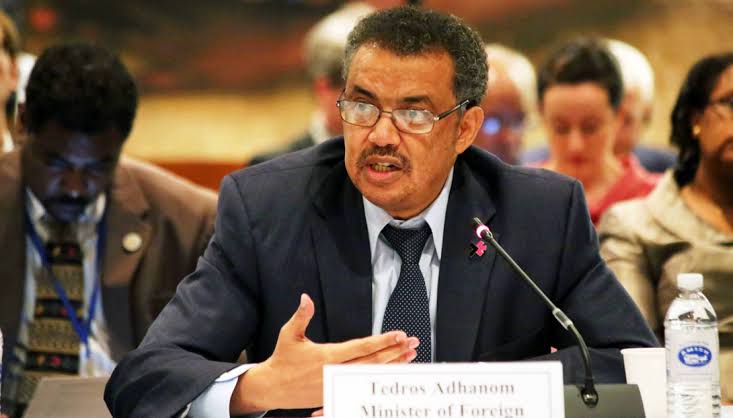By Asmau Ahmad
The Director-General of the World Health Organisation (WHO), Tedros Adhanom Ghebreyesus said rapidly spreading monkeypox can be stopped if countries and individuals take the risks seriously and take needed steps to stop transmission and protect vulnerable groups
During the opening remarks at a media briefing, Tedros said that more than 18,000 monkeypox cases have been reported globally, with more than 70 per cent from Europe, and 25 per cent from the Americas.
So far, there have been five deaths reported, and about 10 per cent of cases are admitted to the hospital for pain management caused by the disease.
The WHO declared monkeypox a public health emergency of international concern (PHEIC) last Saturday.
A PHEIC is the highest level of alert that the United Nations health body can give.
At the moment the outbreak was mostly concentrated in groups of men who have sex with men, but that is not the case everywhere, WHO Technical Lead on Monkeypox Rosamund Lewis said.
According to the WHO, monkeypox could cause a range of signs and symptoms, including painful sores.
Some people developed serious symptoms that need care in a health facility.
Those at higher risk of infection include pregnant women, children, and immunocompromised persons.
The best way to avoid getting infected is to reduce the risk of exposure.
The WHO is working with member states and the EU on releasing vaccines and with partners to determine a global coordination mechanism.
It also recommends targeted vaccination for those exposed to someone with monkeypox, and for those at high risk of exposure.
Lewis said that some 16.4 million vaccines were currently available in bulk, but needed to be finished.
The countries currently producing vaccines are Denmark, Japan, and the United States. The WHO currently doesn’t recommend mass vaccination against monkeypox.




